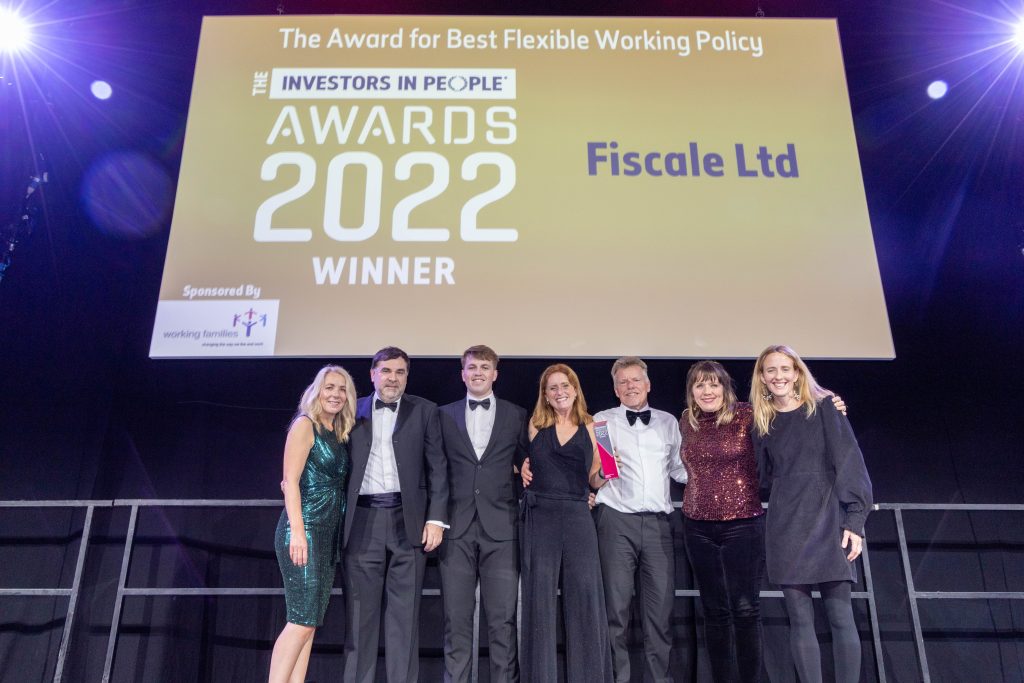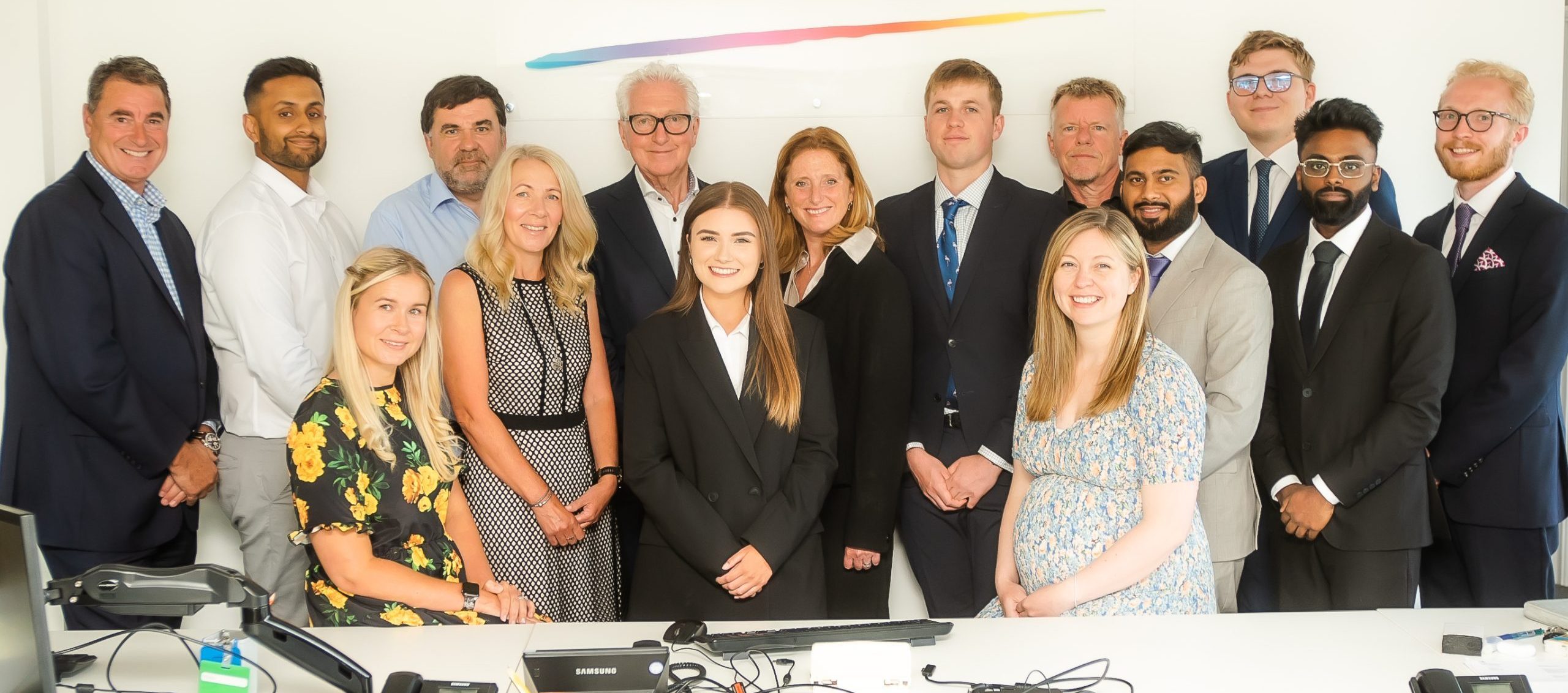
Lucie Mayhew-Smith Fiscale’s HR Director commented ‘We continually look at working practices to improve, asking for employee feedback and ideas from the quarterly Employee Forum and the six-monthly Employee Survey. We strive to lead the way in flexible working practices and believe that our strategy is a USP for Fiscale when it comes to attracting, nurturing, and retaining staff.’
Although most of the Research and Development (R&D) Tax Credit claims that we submit, sail through and are resolved quickly, HMRC have a duty to ensure that they’re applying a consistent and fair process for all so can open an enquiry into submitted R&D Tax Credit claims.
The very nature of R&D Tax Credit claims means that there will be times when HMRC require a bit more information or further explanations, especially in the first couple of claims.
At Fiscale, each claim that we submit on behalf of our clients is extensively researched and written, to remove any ambiguity. As a result, we’re very fortunate to hold an extremely low enquiry rate. However, they do happen. But what does it mean when they do?
The purpose of these enquiries is:
to ensure that the company is in receipt of the correct amount of relief and that it has paid the correct amount of tax
Unlike general enquiries that HMRC can launch, Research & Development (R&D) Tax Credit enquiries tend to focus on their need for additional information or a better understanding of the R&D being claimed for. This is why every report we file ranges between 25-50 pages in length, as our aim is to make the entire process as transparent, easy and as quick as possible. You can find out more about what qualifies as R&D here.
However, it’s inevitable that some Research and Development Tax Credit claims will require a closer inspection from HMRC. We call this process and “enquiry” or a “compliance check“.
Any letter from HMRC can be intimidating for a company to receive, however, we’re here to help you. Whether you’re an existing client or have submitted your claim yourselves or with help from someone else, we will take the lead and work with you to resolve any enquiries to ensure the best possible outcome for you and your business. We will handle all the correspondence with HMRC and if they need to speak to you, we will be present to guide you.
The first stage is that you will receive a letter to inform you that they have some questions relating to your claim. At this stage any payments will be placed on hold, pending the outcome. Enquiries usually last around four to five months, however, can sometime take a little longer, or they can be resolved much sooner.
Once their questions have been answered, it’s possible for the enquiry to be closed. Under these circumstances, the R&D Tax Credit claim will be processed as usual. However, in some situations they may like to speak with the “competent professional” who was involved in preparing the claim.
The importance of understanding what HMRC are asking and why, cannot be understated. This is our speciality.
Our whole business model revolves around not only having experts who know the R&D Tax Credit system intimately but also have years of experience in dealing with HMRC enquiries.
It’s a simple idea – we hire the best people to ensure the best possible outcome for you. Our team of experts know exactly what to present and how, to ensure the best possible outcome for our clients.
At Fiscale, we do everything that we can to prepare and submit claims that pre-emptively answer all questions and show complete workings for our claim value. This in turn results in less ambiguity when being processed by HMRC.
At Fiscale, we do everything that we can to prepare and submit claims that preemptively answer all questions and show complete workings for your claim value. This in turn results in less ambiguity when being processed by HMRC.
For assistance, please call us
There are a myriad of reasons for this, ranging from a belief that the activities carried out do not constitute Research and Development, to an illogical fear of raising their head above the parapet and capturing the attention of the taxman!
Once a company has acknowledged that R&D Tax Credits might be worth exploring and established eligibility, they are faced with another decision on how to go about making a claim.
When it comes to submitting your claim for R&D Tax Credits you essentially have three choices:
We are probably a little biased on this point, but option c) would always be our recommended route and here’s why.
In our experience the DIY approach always ends up leaving something on the table. No matter how diligent and competent your team, R&D Tax Credits is not your core function. You will know everything there is to know about manufacturing or engineering or software development, but how can you possibly know everything about a highly specialised area of tax?
When companies try to submit their own R&D Tax Credits they inevitably do not maximise the amount of money that they could actually claim; they struggle to meet the deadlines for submission as they have their “day job” to contend with and there is no reporting structure put in place to make future claims easier to process. We have one client who prepared a very good claim which would have meant a tax repayment of £30,000; after involving Fiscale, the claim was nearly doubled. There are other examples.
Option b) is generally preferable to the DIY approach, however we must reiterate that R&D Tax Credits is a very specialised area. It is unlike most other areas of accountancy and taxation in that it is less about tax and more about your R&D. The numbers is the easy bit, working out what is qualifying R&D and what constitutes a scientific or technological uncertainty are the challenging bits!
Most accountants are well aware of how to calculate R&D Tax Credits but are much less confident with deciding if the activities undertaken by the client are R&D.
The fact is, we work alongside many accountants because they realise that this is a niche area. Their clients can gain more benefit by using the services of specialist R&D Tax Credits advisors. We do not compete with accountants as we are not offering those standard accountancy services. All we do is R&D Tax Credits and Patent Box Relief.
One of the major differences between R&D Tax Credits submissions made by an accountant and a submission made by Fiscale often lies in the presentation of the information. Many Accountants will simply make changes to the tax computation, but not provide any information to HMRC, by way of explanation.
Do you remember being at school in a Maths lesson and the teacher droning on and on about the importance of showing how you arrived at your final answer? Well, it would appear that R&D Tax Credit submissions are a bit like that too!
The Technical Team at Fiscale prides itself on the level of detail that goes into the Disclosure Report submitted to the R&D Unit at HM Customs & Revenue (HMRC). We believe that one of the keys to our success is the way we show, step by step, how we arrived at the final figure presented in the Disclosure Report.
The comprehensive nature of the report removes any guess work for HMRC, they can follow the thought process that we have worked through. This enables HMRC to query a specific element of the claim rather than throwing the whole claim out because they do not understand where the figures came from. Exposing the process allows any issues to be discussed and illustrates that we have applied due diligence. The detailed nature of the report allows us to present a convincing argument to HMRC as to why all the elements of the claim should be accepted.
The report also reduces either the possibility or quantum of any penalties they could charge as a result of any errors in the claim. HMRC can charge penalties if they find an error in a claim. The penalty can be up to a maximum equal to the tax under declared or the value of any losses that have been overstated which could be considerable. Our processes reduce this risk by disclosing every aspect of the claim which can help demonstrate that ‘reasonable care’ has been taken.
Once the Corporation Tax Return CT600 and Discovery Report are submitted to HMRC we deal with any queries on your behalf. It is a painless process!
From what we have seen many accountants will only submit the CT600 with the R&D Tax Credit claim outlined within the form. There is no detailed Disclosure Report – which means that HMRC cannot see the “workings out”. Cast your mind back to that Maths teacher and remember those immortal words “If I can’t see the workings it’s all wrong” – when it comes to R&D Tax Credits the same principle can apply, increasing the chance that the whole claim will be rejected.
If you want to get the maximum amount possible back from your R&D Tax Credits claim use a specialist, use Fiscale. We show all our “workings out” and guarantee no shortcuts and top marks every time!
Why not contact us today to discuss your business’ R&D tax relief? It only takes our team around 20 minutes to determine if you are eligible or not.
